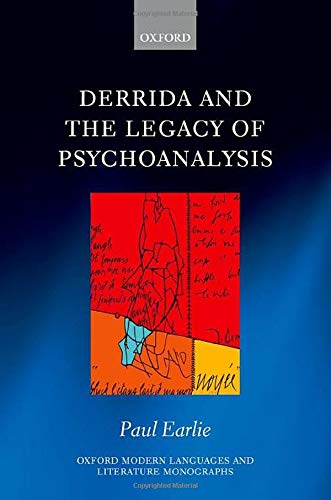

Most ebook files are in PDF format, so you can easily read them using various software such as Foxit Reader or directly on the Google Chrome browser.
Some ebook files are released by publishers in other formats such as .awz, .mobi, .epub, .fb2, etc. You may need to install specific software to read these formats on mobile/PC, such as Calibre.
Please read the tutorial at this link. https://ebooknice.com/page/post?id=faq
We offer FREE conversion to the popular formats you request; however, this may take some time. Therefore, right after payment, please email us, and we will try to provide the service as quickly as possible.
For some exceptional file formats or broken links (if any), please refrain from opening any disputes. Instead, email us first, and we will try to assist within a maximum of 6 hours.
EbookNice Team

Status:
Available4.3
40 reviewsSeries: Oxford Modern Languages and Literature Monographs
In Derrida and the Legacy of Psychoanalysis, Paul Earlie offers a detailed account of the importance of psychoanalysis in Derrida's thought. Based on close readings of texts from the whole of his career, including less well-known and previously unpublished material, the title sheds new light on the crucial role of psychoanalysis in shaping Derrida's response to a number of key questions. These questions range from the psyche's relationship to technology to the role of fiction and metaphor in scientific discourse, and from the relationship between memory and the archive to the status of the political in deconstruction.
Focusing on Freud but proposing new readings of texts by Lacan, Torok and Abraham, Laplanche and Pontalis, amongst other seminal figures in contemporary French thought, Earlie argues that Derrida's writings on psychoanalysis can also provide an important bridge between deconstruction and the recent materialist turn in the humanities. Challenging a still prevalent 'textualist' reading of Derrida's work, he explores the ongoing contribution of deconstruction and psychoanalysis to pressing issues in critical thought today, from the localizing models of the neurosciences and the omnipresence of digital technology to the politics of affect in an age of terror.